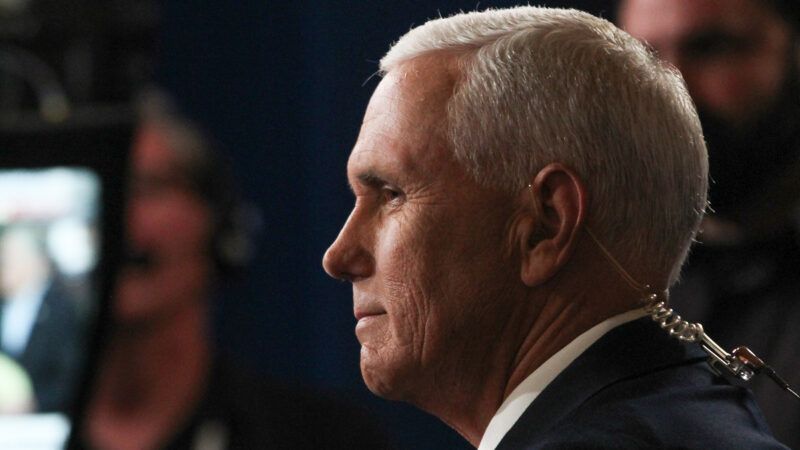No, Mike Pence, We Should Not Make It Easier To Execute Mass Shooters
Pence suggested executing mass shooters in "months, not years," but that would remove crucial procedural protections—and not just for those who are obviously guilty.

During last night's Republican presidential debate, former Vice President Mike Pence had a startling answer to a question about what he would do to reduce gun violence.
"I am sick and tired of these mass shootings happening in the United States of America," said Pence. "And if I'm president of the United States, I'm going to go to the Congress of the United States, and we're going to pass a federal expedited death penalty for anyone involved in a mass shooting so that they will meet their fate in months, not years. It is unconscionable that the Parkland shooter…is actually going to spend the rest of his life behind bars in Florida. That's not justice. We have to mete out justice and send a message to these would-be killers that you are not going to live out your days behind bars. You're going to meet justice."
This plan is not just unlikely to reduce mass shootings; it would leave lots of accused criminals without important procedural protections. While "mass shooting" doesn't have a set legal definition, one common definition puts it as any shooting with at least four victims, including people who were injured rather than killed. By that metric, over 3,500 mass shootings occurred from 2015 to 2022. Roughly 95 percent of these shootings resulted in fewer than four deaths, according to Everytown for Gun Safety's data. That includes a lot of crimes that do not look like Parkland—crimes in which there could be serious doubts about whether the accused is in fact guilty.
Pence is presumably thinking of those who commit the worst deliberate mass shootings But trying to exact even harsher punishments for the very few who commit such terrible violence will primarily end up affecting those accused of, say, drive-by shootings where the perpetrator isn't obvious.
For this reason, expediting the execution process would massively increase the risk that the state executes a wrongfully convicted person. Pence complained that it takes decades to actually execute someone after a conviction, but that time is typically spent exhausting legal appeal or clemency options. Sometimes, these decades of legal appeals help overturn wrongful convictions, such as in 192 cases of death-row exonerations recorded by the Death Penalty Information Center. In total, one 2014 study estimated that as many as 4 percent of those sentenced to death in America are innocent.
In addition to the increased risk of wrongful execution, making it easier to execute someone sentenced to death would likely not affect the number of people killed by gun violence—or even the number of people killed by mass shootings. There's considerable debate over whether harsher sentences can deter crime in some circumstances. However, it's difficult to see how a swifter death penalty will deter those who plan to commit the worst and rarest mass shootings, considering just how often these shootings end in suicide or the shooter being killed by police or bystanders.
So while Pence and one other Republican presidential candidate are all too excited to make it easier for the state to execute people, expediting the death penalty would be anything but just.


Show Comments (112)